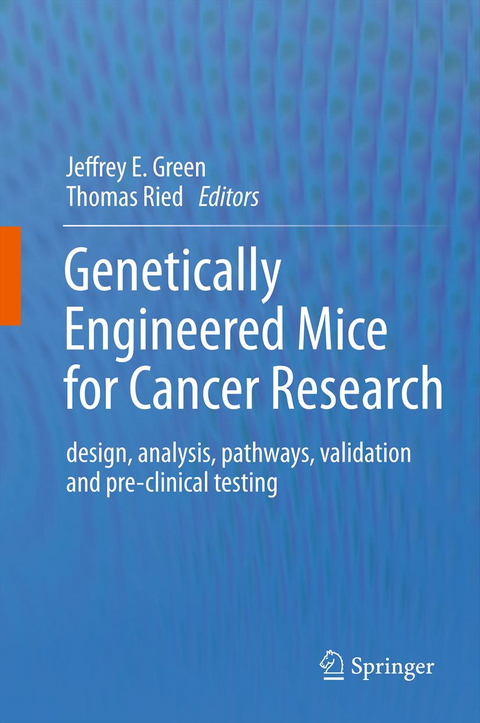
Genetically Engineered Mice for Cancer Research
Springer-Verlag New York Inc.
978-1-4899-9125-6 (ISBN)
Foreword.- Preface.- Overview of Designing Genetically-Engineered Mouse Models.- The Use of Cre-loxP Technology and Inducible Systems to Generate Mouse Models of Cancer.- Using Recombineering Technology To Create Genetically Engineered Mouse Models.- Insertional Mutagenesis for Generating Mouse Models of Cancer.- The RCAS/TVA Somatic Gene Transfer Method In Modeling Human Cancer.- Target-selected ENU Mutagenesis to Develop Cancer Models in the Rat.- The Tumor Pathology of Genetically Engineered Mice: Genomic Pathology.- Genomic DNA Copy Number Alterations in Mouse Cancer Models and Human Cancer.- Characterization of chromosomal translocations in mouse models of hematological malignancies using spectral karyotyping (SKY), FISH, and immunocytochemistry.- Expression Profiling of Mouse Models of Human Cancer: model categorization and guidance for preclinical testing.- Imaging mouse models of human cancer.- Identifying Mammary Epithelial Stem and Progenitor Cells.- Differentiation Programs in Development and Cancer.- Roles of p53 and PRB Tumor Suppressor Networks in Human Cancer: Insight from Studies in the Engineered Mouse.- Mouse Models for Colorectal Cancer.- Src family tyrosine kinases: Implications for mammary tumor progression.- Maspin and Suppression of Tumor Metastasis.- Epigenetic Mouse Models.- Modeling Transforming Growth Factor-ß Signaling in Cancer.- Modeling Stromal-Epithelial Interactions.- Utilizing Mouse Models of Human Cancer for Assessing Immune-Modulation of Cancer Development.- Transplanted Tumor Models For Preclinical Drug Testing And The Potential Benefit Of Genetically Engineered Mouse Models.- The Development and Use of Genetically Tractable Pre-Clinical Mouse Models.- Animal Models for Breast Cancer Prevention Resarch.- Oncogene Addiction: Mouse Models and Clinical Relevance for Molecularly Targeted Therapies.- Mouse Models in Preclinical Drug Development- Applications to CNS Models.- Mouse Models of Human Cancer: Role inPre-clinical Testing and Personalized Medicine.- Mighty, But How Useful? The Emerging Role of Genetically Engineered Mice in Cancer Drug Discovery and Development.- Index.
| Zusatzinfo | XX, 632 p. |
|---|---|
| Verlagsort | New York |
| Sprache | englisch |
| Maße | 155 x 235 mm |
| Themenwelt | Medizin / Pharmazie ► Medizinische Fachgebiete ► Laboratoriumsmedizin |
| Medizin / Pharmazie ► Medizinische Fachgebiete ► Mikrobiologie / Infektologie / Reisemedizin | |
| Medizin / Pharmazie ► Medizinische Fachgebiete ► Onkologie | |
| Studium ► 2. Studienabschnitt (Klinik) ► Humangenetik | |
| Naturwissenschaften ► Biologie ► Zoologie | |
| Schlagworte | Insertional Mutagenesis • maspin • p53 • pRB • tyrosine kinases |
| ISBN-10 | 1-4899-9125-5 / 1489991255 |
| ISBN-13 | 978-1-4899-9125-6 / 9781489991256 |
| Zustand | Neuware |
| Informationen gemäß Produktsicherheitsverordnung (GPSR) | |
| Haben Sie eine Frage zum Produkt? |
aus dem Bereich


